The History of Gospel Music Part 1
From long ago, gospel music is part of our voice and our song. It has been a totally powerful expression not only in calling for change in the lives of human beings. It is definitely about the glorification of God in many ways. For centuries, gospel has been a beacon of advice, of inspiration, and of excellent celebration. It is also important to reiterate that gospel is not monolithic. It has been expressed by people of every color and of every background throughout the ages. Likewise, the black American experience is definitely intertwined in the gospel tradition. The black church has been an anchor for our community not only as a meeting place. Back then, the black church was a location where people learned how to read, learned how to be educated in STEM Fields, they (or black church members) facilitated progressive social movements (like the Abolitionist and Civil Rights Movements), and religious churches have been a location where folks unapologetically expressed their concerns and august dreams. Gospel music has been a soundtrack for so many. My parents enjoy gospel music, and I have certainly listened to gospel music found in America including throughout the world. Life doesn't require us to be perfect 24/7 365. No one is 100 percent except God. Yet, we do have the responsibility to be better and do better among our neighbors though. The Golden Rule remains absolutely clear and true to advance. Material growth is not superior to Spiritual/Moral Growth.
We certainly have the duty to advance a moral code in our lives. That is precisely why gospel has been used as a tool to help those to overcome many challenges. It is just a fact that music has helped human beings with their issues and motivated folks to move forward with their lives. Modern day gospel has roots from Africa, Europe, and other locations When you think about the Fisk Jubilee Singers, The Soul Stirrers, The Clarks Sisters, Mahalia Jackson, the Mississippi Mass Choir, and other artists, you think about their commitment in showing love towards the Lord. In recent generations, many old school people have criticized the commercialization and secular-appealing that some new school gospel music has become. That issue should be debated. We should always reject the wordiness that promotes compromise, that promotes evil, and harbors a hatred of God and his will. Yet, it is also important to note as long as an artist has the intention to promote righteousness, have legitimate lyrics of holiness, and not compromise to the ways of the world (regardless of the artist's age or generation), then that person shouldn't be massively criticized. Guitars, choirs, drums, bass guitars, and tambourines are readily utilized in gospel music. After long centuries of modern day gospel music, it remains a powerful force of black culture and musical culture in general too. Excitement, charisma and spiritual growth characterize the essence of true gospel musical expression.
The Genesis
In the beginning, music spread massively. The genesis of all human life came from black people in Africa. Every paternal and maternal haplogroup came from Africa. Religious songs were commonplace among humanity for thousands of years. Since human beings existed first in Africa, music was very much a widespread aspect of human expression. Flutes existed well beyond the time of the Middle Ages or during the days of B.C. There was a song written in cuneiform in about 3,400 years ago from Ugarit in Syria. Ancient Africa, Asia, Europe, Australia, and the Americas including Oceania had music all over the atmosphere. In ancient West Africa, there has been a multi-rhythmic sounds that influenced many musical styles in the Americas. The first black Africans in America (during the modern era of human history) came about in the 1500's. Then, black people were in Jamestown by 1619 from Angola. The African usage of the call and response, improvisation, polyrhythms, and percussive parts influenced heavily the modern development of gospel music (as documented by the art historian Robert Farris Thompson in his book entitled, "African Art in Motion: Icon and Act, Art").
The Early Days to 1800
Gospel music has a lot of origins. There is the Yale University music professor named Willie Ruff. He said that the singing of psalms in Scottish Gaelic by Presbyterians of the Scottish Hebrides evolved from "lining out"—where one person sang a solo and others followed—into the call and response of gospel music of the American South. Another theory notes foundations in the works of Dr. Isaac Watts and others. Dr. Watts (1674-1748) was a hymnist and theologian. He was born in England. He wrote over 750 hymns. His songs were so popular among African Americans that our people referred to him as "an old Dr. Watts." The Great Awakening took place in the 1730's. To learn about religion in America, always study the Great Awakening. It was a religious revival in North America where some people wanted to convert Africans to Christianity. It didn't work greatly. The reason was that many Africans saw the hypocrisy of faux religious people claiming to be for freedom, but these hypocrites enslaved human beings in the Americas. The actions of these evil enslavers are not representative of every Christian or believer in God. So, I want to make that clear. That is why black people in America used music as a means to promote liberation while recognizing the power of God. As others know, many Africans in America were Muslims, animists, and people of other religious beliefs.
Much repetition existed during the time where gospel music evolved to where it is today. Perhaps the most famous gospel-based hymns were composed in the 1760s and 1770s by English writers John Newton ("Amazing Grace") and Augustus Toplady ("Rock of Ages"), members of the Anglican Church. Starting out as lyrics only, it took decades for standardized tunes to be added to them. Although not directly connected with African-American gospel music, they were adopted by African-Americans as well as white Americans, and Newton's connection with the abolition movement provided cross-fertilization. In 1780, there was John Wesley’s A Collection of Hymns for the Use of the People Called Methodist is published. Songs such as “There is a Fountain Filled with Blood” and “Father I Stretch My Hands to Thee” quickly become standards of the African American sacred music tradition. After the African Methodist Episcopal Church was formed by black people in 1787, gospel music grew.
The 19th Century
By the 1800's, many African American gospel music used spirituals, shouts, lined hymns, and anthems. Gospel music spread heavily during the 19th century. From churches to other places, gospel music was widespread. African Americans were always one large anchor of gospel music since the start of the American nation plus before. During the 19th century, spirituals was very popular in the black community. Many spirituals merged Christian beliefs with the music traditions of Africa. Drums, banjos, and other instruments were used by black people during the 18th and 19th centuries. Many songs from black Americans wanted freedom and used the story of enslaved Israelites as motivation for them to desire an end to oppression. The land of Canaan in the Bible was used as a motif in spirituals to seek out an end to slavery. Gospel spirituals focused on black joy, black pain, and hopes for a better future. Tons of black people escaped slavery to live in the North and in Canada to seek a much better life beyond tyranny. After the U.S. Civil War, legalized slavery was banned in 1865 via the 13th Amendment. Black people saw Reconstruction, then Jim Crow apartheid appeared after Reconstruction ended.
The Gospel song appeared in 1874 when Philip Bliss released a songbook entitled Gospel Songs. A Choice Collection of Hymns and Tunes. Gospel spread by people involving in using a new style to show church hymns. Dwight L. Moody had a revival movement that helped to spread musical expression. The revival movement employed popular singers and song leaders, the most famous of them being Ira D. Sankey. The original modern-day "gospel" songs were written and composed by authors such as George F. Root, Philip Bliss, Charles H. Gabriel, William Howard Doane, and Fanny Crosby. As an extension to his initial publication Gospel Songs, Philip Bliss, in collaboration with Ira D. Sankey issued no's. 1 to 6 of Gospel Hymns in 1875. Sankey and Bliss's collection can be found in many libraries today. The popularity of revival singers and the openness of rural churches to this type of music (in spite of its initial use in city revivals) led to the late 19th and early 20th century establishment of gospel music publishing houses such as those of Homer Rodeheaver, E. O. Excell, Charlie Tillman, and Charles Tindley. These publishers were in the market for large quantities of new music, providing an outlet for the creative work of many songwriters and composers.
One of the greatest, innovative gospel singers were called The Fisk Jubilee Singers. They were inspired by the spirituals. They set up to get money to help save Fisk University (a HBCU) from closure in 1871. Historically Black Colleges and Universities are some of the greatest black institutions in the world. They raised over $150,000 from America and Europe to save Fisk University. Fisk University was a Nashville school that former slaves opened in 1866. In fact, many HBCUs were created during the Reconstruction era of American history. The Fisk Jubilee Singers were made up of a group of 14 men and women students. Later, this gospel group toured the world. They used choir vocals that became a huge sound of black American music power. The Jubilee Singers were later made up of a tight, four part harmony that inspired future generations of gospel legends.
The 20th Century
During the early 1900's, churches, colleges, social clubs, and factories had their own Jubilee Quartets. In 1901, songwriter and religious leader Charles Albert Tindley begins publishing songs in Philadelphia. Classic compositions by Tindley include “Stand By Me,” “We’ll Understand it Better By and By,” and “Some Day (Beams of Heaven).” Modern Pentecostalism came from the Azusa Street Revival in Los Angeles from 1906. The music expanded the shouts of songs which was key in developing modern day gospel music. Modern day gospel was influenced by the shouts. The shouts are spiritual experiences that many African Americans have been involved to. Many of these experiences have religious followers claiming to be inspired by the Holy Spirit. A lot of people don't know that early gospel music was not beloved by all people. Many denominations were so extreme that they viewed using drums as part of the devil. There were honky tonks and juke joints back then with graphic lyrics. That is true. Yet, legitimate music praising God is not evil.
The advent of radio in the 1920s greatly increased the audience for gospel music, and James D. Vaughan used radio as an integral part of his business model, which also included traveling quartets to publicize the gospel music books he published several times a year. Virgil O. Stamps and Jesse R. Baxter studied Vaughan's business model and by the late 1920s were running heavy competition for Vaughan. The 1920s also saw the marketing of gospel records by groups such as the Carter Family. In essence, the gospel music was popular along with blues, ragtime, and early jazz. The songs of gospel artists like Arizona Dranes, Blind Willie Johnson, and Washington Phillips were fresh and raw. Some called this music as gospel blues and holy blues. In 1921, the National Baptist Convention published the songbook Gospel Pearls, the first hymnal from a major African American denomination to include selections of the new music that would become known as gospel.
The Pentecostal movement quickly made inroads with churches not attuned to the more conservative, traditional Black church music that had become popular over the years since Emancipation. These congregations readily adopted and contributed to the gospel music publications of the early 20th century. Sister Rosetta Tharpe, pioneer of rock and roll, soon emerged from this tradition as the first great gospel recording artist. Rosetta Tharpe played the guitar very powerfully. The first person to introduce ragtime to gospel (and the first to play piano on a gospel recording) was Arizona Dranes.
In 1931, Theodore Frye and Thomas A. Dorsey create the first gospel chorus. Sister Rosetta Tharpe scores the first million-selling gospel record with the hit single “This Train.” Tharpe was the dominant gospel music performer of the late 1930’s and 1940’s, mixing soulful guitar licks and big band accompaniment with sacred lyrics.
The Prelude to Mahalia Jackson
The 1930s saw the rise of Black gospel quartets such as the Five Blind Boys of Mississippi and the Five Blind Boys of Alabama. In addition to these high-profile quartets, there were many Black gospel musicians performing in the 1920s and 30s, usually playing the guitar and singing in the streets of Southern cities. In the 1930s, in Chicago, Thomas A. Dorsey turned to gospel music, establishing a publishing house. It has been said that 1930 was the year traditional black gospel music began, as the National Baptist Convention first publicly endorsed the music at its 1930 meeting. Dorsey was responsible for developing the musical careers of many African-American artists, such as Mahalia Jackson (best-known for her rendition of his "Precious Lord, Take My Hand"). Thomas Andrew Dorsey composed songs like Peace in the Valley, Highway to Heaven, Search Me Lord, Old Ship of Zion, Precious Lord, Hide Me in Thy Bosom, and over 1,000 songs. He was probably the most influential gospel songwriter of his time. Dorsey worked with singer and businesswoman Sallie Martin to create the National Convention of Gospel Choirs and Choruses.
Meanwhile, radio continued to develop an audience for gospel music, a fact that was commemorated in Albert E. Brumley's 1937 song, "Turn Your Radio On" (which is still being published in gospel song books. In 1972, a recording of "Turn Your Radio On" by the Lewis Family was nominated for Gospel Song of the Year). By the 1940's to the 1970's, gospel music would be dominated by Mahalia Jackson and other artists who combined the old school songs with new school flavor. Gospel music in the modern sense developed by the later era of Mahalia Jackson.
During the near future, the next part of this series will be about the era of Mahalia Jackson involving gospel music from the 1940's to the early 1970's.
Appendix A: The African American Church
For a long time, the Black Church has been a powerful institution that represents a large anchor of our community. The pastor, the choir, the ushers, the elders, and the congregations all have a role to play in making sure that spiritual insights are made available for the masses of the people. Going into a black church is like an time of celebration at many circumstances. It is a solemn place of connections with family and friends. The black church is made up of human beings, so the same emotions of joy, anger, happiness, and hope are found in the black church culture thoroughly. When you study black American church history, it is always part of American history. The long history of the Black Church has been filled with inspiration and strength. Also, you have the haters and skeptics (from extremists, many Hoteps, and liars) who make it their duty to scapegoat and demonize anyone in the Black Church for everything under the sun. Their lies will be refuted here like usual. Also, I will expose many white Evangelicals who believe in the lies that God is white, Trump is righteous, and that black people don't deserve unconditional justice. So, many bases will be covered here like usual. The Black Church inspired social movements (like the abolitionist movements, the labor movement, the environmental justice movement, the Civil Rights Movement, and the black freedom movement of the 21st century). The black church is made up of tons of black leaders, and have inspired so many in their walks with God. To start, the Black Church started with the founder of Christianity, who is the Lord Jesus Christ. Jesus Christ led a life of strength, holiness, and compassion.
As a young child, he discussed religious issues with the rabbis of the Temple. He spoke the truth that the Kingdom of God is within you, he condemned materialism to the point to making sure that gamblers were sent out of the Temple, and he died for us all. After his death, he resurrected from the dead and rose into Heaven. As the Son of the living God, Jesus Christ appointed the apostles to not only preach the Gospel. He also wanted them to evangelize throughout the whole world. The Christian religion rapidly spread into Asia, Africa, Europe, etc. during the first four centuries after the Lord Jesus Christ's birth on Earth. During the Roman Empire, Christians were heavily persecuted. Many early Christians were slaves in the Roman Empire. Some were unjustly imprisoned and stripped of basic human rights.
Many of them were murdered via crucifixion in Rome and in other places. Roman Emperor Diocletian was a brutal oppressor of early Christians. Numerous Christians wrote symbols in the catacombs. Many Christians fought slavery during the days of the Roman Empire. Also, Christianity was flourishing in Africa from the beginning. The big lie (promoted by some) is that Christianity is the white man's religion (and the other lie is that Christianity's sole purpose is to force black people to be slaves) when Christianity is pro-multicultural (or that people can join Christianity without compromising their cultural traditions). Many of the greatest leaders of the abolitionist and anti-slavery movements spanning centuries have been God-loving Christians like Harriet Tubman and Rev. Richard Allen. Yeshua Ha Mashiach is the Son of the living God, the King of Kings and the Lord of Lords. Not to mention that Galatians 3:28 is clear that we are all one in Christ regardless of our color, sex, or background. Currently, the vast majority of Christians in the world today are people of color. There are almost 400 million Christians in Africa, about 70 million Christians in China, and millions of others worldwide including in America. We know that Jesus Christ wasn't a blond haired blued eyed man. Not to mention that black people were in the Church from the start. We know that in the book of Acts, there was the black Ethiopian eunuch who converted to Christ via the Apostle Philip as found in Acts 8. The eunuch was the Treasurer for the Nubian Queen Candace. The Nubian man was baptized after he converted. According to tradition, he helped to converted his Queen to Christianity. Pentecost was celebrated in Acts 2:8-11 among people of numerous colors and ethnic backgrounds. One of the earliest Christians was a black man named Simeon of Cyrene (Acts 13). Africa is the Motherland of Humanity, so Africa is the origin of all people and all spirituality by nature.
Also, we know that many Hoteps are so anti-Christ, some of them make money to slander Christianity and Christians in showing vicious hatred against Christians. The truth is that the Hoteps omit is that ancient Egypt wasn't all perfect. Ancient Egypt has incest among numerous Pharaohs (some ancient Pharaohs were sick to have married their own sisters and had children with close relatives), many ancient Egyptians enslaved Nubians including ancient Egyptians, many ancient Egyptians promoted imperialism in Africa including the Levant, and ancient Egypt believed in many false gods based on mythology. In fact, there is the story of how Set attempted to rape Horus (as found in the Chester Beatty Papyrus No. 1. In the story, Set and Horus battle for the rulership of ancient Egypt). I only heard of this information recently, so this proved that ancient Kemet is the complete opposite of what Hoteps claim ancient Kemet was. Kemet failed during the ancient times, because an authoritarian monarchy claiming that a mere pharaoh was a god is totally against logic or reason. Ancient Egypt had the wickedness of human sacrifice too. Ancient Egyptian retainer sacrifice is a type of human sacrifice in which pharaohs and occasionally other high court nobility would have servants killed after the pharaohs' deaths to continue to serve them in the afterlife. Scholars say that human sacrifice was illegal in ancient Egypt, but it took place.
Also, the ancient Book of the Dead (that I can quote easily) glorify evils like blood eating, eating intestines, crushing bones, washing in blood, and other grotesque things that I can't mention here. The Book of the Dead is one of the most wicked, anti-God books in human history.
So, numerous God haters and many Hoteps don't know a thing about what they subscribe to.
Early African Christianity flourished by the year of 200 A.D. in Carthage, Nubia, and other places. Christian Nubia was known for having a strong Christian faith with kings, queens, bishops, etc. The Apostle Mark was martyred, and tradition said that he preached the gospel in Egypt. Christians once was the majority of the religious population in Egypt until the 10th century. So, black Christianity is part of the African heritage. Now, my ancestors came from the Bantu people from West and Central Africa. The Bantu people were key in the new era of Christianity in Africa. The Portuguese were the first people who were involved in the Maafa. Most of them were Roman Catholics (Roman Catholicism teaches that the Pope is God's representative on Earth, that priests must be celibate against their will, and that Mary was an Ever Virgin. All of these views have no Scriptural basis). The Spanish and Portuguese people captured many ports of North Africa after the end of Reconquista (during the late 1400's). Many Jesuit missionaries (you know how I feel about the Jesuits, but I show this information for historical reasons) traveled into Africa as early as 1548 to try to convert people. In 1561, Gonçalo da Silveira, a Portuguese missionary, managed to baptize Monomotapa, king of the Shona people in the territory of Zimbabwe. A modest sized group of Jesuits began to establish their presence in the area of Abyssinia, or Ethiopia Superior, around the same time of Silveira's presence in Southern Africa. As time went on, the Catholics and the Jesuits influenced many in the Kongo kingdom. The Jesuits found themselves expelled from Mozambique and Angola, as a result, the existence of Catholic missions diminished significantly in these regions. Later, Protestant movements would spread in West Africa among the Bantu peoples in Congo, etc.
Adaptations of Protestantism, such as the Kimbanguist church emerged. Within the Kimbanguist church, Simon Kimbangu questioned the order of religious deliverance. He said that, would God send a white man to preach? The Kimbanguist church believed Jesus was black and regarded symbols with different weight than the Catholic and Protestant Europeans. The common practice of placing crosses and crucifixes in churches was viewed as a graven image in their eyes or a form of idolatry. Also, according to Mazrui, Kimbanguists respected the roles of women in church more than orthodox churches; they gave women the roles of priests and preachers. Early African Christian leaders from West Africa were people like Dona Beatriz. Many West African Christians back then supported polygamy and some didn't. Many younger West/Central Africans gradually formed ideas based on Christianity, while elders were more skeptical.
The Maafa involved tons of Europeans kidnapping black Africans and forcing them into slavery. Many of the people involved were white Catholics, white Protestants, and white Baptists. Also, many Arabic Muslim racists were involved in another slave trade lasting for over 1,000 years too harming black people. Tons of people don't know that Saudi Arabia never banned slavery until the 20th century long after 1865. Some people don't know that slavery in Africa and worldwide happens now like the slave trade against innocent black Libyans done by racists. There is no excuse for the Maafa and the existence of slavery at all. It is immoral to kidnap a human being against his or her will to do as you say without free will. It is immoral to split families and beat innocent people. It is immoral to impose a religion against a person against his or her free will too. Conversion should be voluntary with consent not done by force. The problem with the Europeans involved in the Maafa was that they kidnapped black people, abused black people, and distorted Christianity in order to control people against their wills. That is why the Maafa is unbiblical by many reasons.
Kidnapping, rape, abuse, splitting families, harming children, murder, racial hatred, calling black skin cursed, human trafficking, religious deception, and other evils were found in the Maafa and slavery in the Americas, Africa, etc. All of these acts are forbidden in the Scriptures. Also, it is important to note that religions back then and today are diverse in Africa. Africa is home to tons of languages being spoken, and many creeds being expressed. During ancient times, many black people were aminists, Muslims, Christians, followers of Judaism, and polytheists. In fact, many of the slaves in America were of the Muslim faith. There is the story of Abdulrahman Ibrahim Ibn Sori, a Muslim prince from West Africa who spent 40 years enslaved in the United States from 1788 onward before being freed, demonstrates the survival of Muslim belief and practice among enslaved Africans in America.
Many early black slaves in America would secretly follow the Islamic faith in places like Maryland, Virginia, South Carolina, etc. Back during the 1600's, early Christianity was not widespread among black people in America. During the 1700's, the Society for the Propagation of the Gospel in Foreign Parts (SPG) were heavily not successful in not converting Native Americans and Africans, because they used evil means in trying to get their success. John Wesley struggled to convert Native Americans and African slaves. The First Great Awakening from George Whitefield from 1739 to 1741 spread religious teachings, but not a lot of African Americans converted. Even in the 1770's only about 1 percent of all black people in America had links with organized churches. Many churches back then either didn't want black people in churches (for fear of slave revolts) or segregated black religious people. By 1758, there is the first recorded black congregation in the plantation of William Byrd, near Mecklenburg. The music of black religious people in the church definitely had African influences from dancing, the ring shouts, the shouting, the call and response ceremonies, the repetition of rhythms, drums, etc. These realities all represent African influences. Many early black Christians used the Gospel as a means for them to fight for freedom. It was a transformative experiences where they wanted to fight for change.
In 1773, black Baptists made a church on the plantation of George Galphin at Silver Bluff, South Carolina. In the same year Phillis Wheatley's Poems on Various Subjects Religious and Moral was published in London. Wheatley was a religious black Christian woman. The American Revolutionary War changed things. Many sincere black people fought on both sides for the same goal of ending slavery and establishing justice. As we know, after that war, black people still weren't free. The contradiction of Thomas Jefferson writing the words of "all men are created equal" (as found in the 1776 Declaration of Independence document) and him owning slaves exposed how America's original sin was the enslavement of Africans (and the genocide of the Native American people). Black Baptist churches formed in the cities of Williamsburg and Petersburg in Virginia. Many black people joined Baptist and Methodists churches because of much of their simplistic style and a desire to have freedom from slavery.
The era of the Second Great Awakening in America caused African Americans to be heavily Christian. It was from ca. 1800 to the 1820's. This was the time when black churches were more modernized. The reality of the history of American Christianity was that many white churches were more reactionary than the black churches desiring an immediate end to slavery and oppression. Many white churches back then didn't want black people to read, some white churches eliminated verses from the Bible calling for freedom, and antebellum slavery was extremely brutal. Black people were readily abused, raped, and bodies split apart by machines including crocodiles. That is why the Black Church was a place of encouragement, safety, and political organizing. It was home to many black folks who were enslaved and free too. It would be centuries after the antebellum period when many mainline white churches would try to apologize to us black people for their role in the slavery of black human beings.
Central to the growth of community among black people was the black church, usually the first community institution to be established. Starting around 1800 with the African Methodist Episcopal Church, African Methodist Episcopal Zion Church and other churches, the black church grew to be the focal point of the black community. The black church- was both an expression of community and unique African-American spirituality, and a reaction to discrimination. The First Baptist Church and Gillfield Baptist Church of Petersburg, Virginia, both had organized congregations by 1800 and were the first Baptist churches in the city. The black pastor of the church held the community, shepherded believers, acted as a counselor, and spoke in many cases with great oratory. There were divisions in the church. Many white Baptist church folks wanted slavery back then, while black Baptists wanted freedom from injustice. Black women religious leaders were in existence too. Jarena Lee (1783-1850's?) was born in Cape May, New Jersey. She was a black woman preacher and missionary. She gave almost 200 sermons and traveled over 2,300 miles in 1827. In 1784, the first General Conference (the Christmas Conference) of the newly formed Methodist Episcopal Church forbids its members to own slaves.
Absalom Jones and Richard Allen lead a small group of Africans out of Philadelphia’s St. George Church after being forced to give their seats to white congregants. (Some scholars argue this occurred in 1792). In 1787, Philadelphia black Americans, including Richard Allen and Absalom Jones, organize the Free African Society as a burial society and support organization for widows and orphans. George Liele formed the first black Baptist Church in the Caribbean Islands at Jamaica. Andrew Bryant formed the first African Baptist Church in Savannah, Georgia. In 1794, Richard Allen purchased a lot at the corner of Philadelphia’s Sixth and Lombard Streets, moves a blacksmith shop to the site, and invites Bishop Francis Asbury to dedicate it as a worship center named Bethel Church. In the same year, Absalom Jones helped to found and then pastored the African Episcopalian Church of St. Thomas, the first black Episcopal church in America.
By the 1800's, the black church grew quickly at Abyssinian Baptist Church in 1809, the first Presbyterian church (in NYC in 1807 making John Glouchester as a founding pastor), and the Union American Methodist Episcopal Church in 1813. Black Methodists have a long history of social activism. In 1816, the African Methodist Episcopal Church (AME) organizes in Philadelphia with Richard Allen consecrated as its first bishop. In 1822, the African Methodist Episcopal Zion Church (AMEZ) organizes in New York City with James Varick as its first bishop. We know of the 1822 insurrection planned by Denmark Vesey. Vesey was a member of the African Methodist Episcopal Church of Charleston, South Carolina. In 1823, Julia A. J. Foote, the daughter of former slaves from Schenectady, New York, becomes a powerful preacher within the AMEZ Church, helping the denomination to be the first black church to ordain a woman as elder 75 years later. Many great black abolitionists were involved in the church like Samuel Cornish (he founded the first black abolitionist newspaper of Freedom's Journal in 1827) and David Walker who made Appeal in 1829. Many black Catholic people formed various orders in 1829 via Mary Elizabeth Lange. Other 19th century black Catholic leaders are James Augustine Healy, Patrick Frances Healy, and others. Nat Turner was filled with inspiration (and he read the Bible) to organize his rebellion in Southampton County, Virginia in 1831 where 57 whites were killed (and Nat Turner was murdered and his body mutilated. Also, white racists responded by murdering innocent black people too).
By 1834, Great Britain banned slavery in their empire, but they permitted imperialism. Amanda Berry Smith was a famous black preacher from Long Green, Maryland too. Black Presbyterian pastor Henry Highland Garnet wanted slaves to rebel in his "Address to the Slaves" speech. Sojourner Truth was a preacher, abolitionist, and feminist. In 1844, the Methodist Episcopal Church separated over slavery. They formed North and South branches. In 1845, white Baptists split over the issue of slavery. The South Baptist Convention was first formed to defend slavery. That is why the Southern Baptist Church had to apologize for once condoning slavery and Jim Crow apartheid. The northern group, the Northern Baptist Convention, is now called the American Baptist Churches in the U.S.A.. The southern branch took the name of Southern Baptist Convention, claiming an estimated 200,000 black members today.
Harriet Tubman was a well known Christian who saved hundreds of black slaves. She came from the Maryland Eastern Shore. The Presbyterian Church establishes Ashmun Institute (later renamed Lincoln University) in Pennsylvania to train black men for missions and ministry in 1854. Religious black people were involved in fighting for the Union to defeat the Confederacy. In 1864, the American Missionary Association sends Sara G. Stanley, an African American woman who was educated at Oberlin college, south to educate the newly freed slaves. She was among many of the black people and the white people who saw the education of former slaves as their calling. After the American Civil War ended, black people celebrated all over America. Reconstruction came about, and a new reality existed. Black people were in the federal and state legislatures for the first time in American history. The 13th, 14th, and 15th Amendments were passed. Yet, challenges persisted. There was the rise of new white racist terrorism in the form of the Klan and other terrorist groups. Anti-black pogroms spread in Memphis, North Carolina, etc., and the black church was front in center to help our black people. In 1870, Colored Methodist Episcopal Church (now the Christian Methodist Episcopal Church) organized in cooperation with the Methodist Episcopal Church South. During the Reconstruction period, the Methodist Episcopal Church South lost significant numbers of its former slave membership to the AME, AMEZ, and the Northern Methodists. At its founding, the Southern Methodists were down to 40,000 freedmen and women.
By the late 1800's, black Roman Catholics expanded. There was the parish in Baltimore by 1864, and James A. Helay in 1875 was the first African American Catholic bishop. Lutherans were part of the black American experience too. The first woman elder of the AMEZ Church was Mary Jane Small or the wife of AMEZ bishop John B. Small. One of the most important events of black American church history was the event of the Pentecostalism movement. It happened in a revival meeting at Azusa Street Mission in Los Angeles, California. Pentecostalism has a heavy mention of the Holy Spirit. I have no problem with that, but you have to be doctrinally sound too. This movement uses emotion, music, dancing, and a sense of force that inspires many religious people to this very day. The movement was heavily integrated as black and white followers worshiped God together in many of the churches (among the Azusa movement). The 20th century had a mixture of black Christians loving religious experiences, many black Christians were focused on doctrinal issues, and there was that segment of the Black Church involved in the fight for social justice. There are many Christians who love to fight for social, economic, and racial justice, and that is fine. Yet, you have to also maintain your spiritual base. Life is not about bread alone. In other words, social justice is important along with promoting the Christian religious creed too. James H. Lark was the first African bishop in the Mennonite Church.
One of the greatest religious leaders of the early 20th century was Nannie Helen Burroughs (1879-1961). She was a black educator, civil rights leader, feminist, and businesswoman. She wanted to promote more women in the black church as leaders. In 1900, she gave a speech entitled, "How the Sisters Are Hindered from Helping" at the 1900 National Baptist Convention in Virginia. She founded the National Training School for Women and Girls in 1909 at Washington, D.C. Even in the black church, unfortunately there was sexism back then and today. She fought for equal rights throughout her life. Orange, Virginia was the place of her birth. His father was a farmer and Baptist preacher named John Burroughs. Her mother was Jennie Burroughs. Both of them were former slaves. Nannie Burroughs worked actively in the NAACP. One of the greatest preachers and theologians of the 20th century was Rev. Howard Thurman (1899-1981). His book entitled, "Jesus and the Disinherited," inspired civil rights leaders including Dr. King. That book views the teachings of Jesus Christ through the experience of the oppressed and promotes nonviolent responses to oppression. Rev. Thurman was dean of Rankin Chapel at Howard University form 1932 to 1944. He was also dean of Marsh Chapel at Boston University from 1953 to 1965. He was a classmate with Dr. King's father. Rev. Howard Thurman was a religious advisor to Dr. King, Sherwood Eddy, James Farmer, A.J. Muste, and Pauli Murray.
The Old School Civil Rights Movement era came from 1954 to 1968. During that time period, the Black Church had a dominate role in protests, protecting activists, organizing rallies, funding boycotts, and being a beacon of inspiration for our people. Preachers like Rev. Dr. Martin Luther King, Rev. C. T. Vivian, Rev. Ralph Abernathy, Rev. James Lawson, and other religious leaders used religious arguments and public social activism to defeat legalized Jim Crow apartheid. It is also important to note that black women were huge leaders in the Civil Rights Movement and overall black freedom struggle too like Septima Clark, Ella Baker, Rosa Parks, Fannie Lou Hammer, and other human beings who sacrificed their lives for us. Tons of these women were religious black Christians too. White racists bombed religious churches constantly during that era, even killing 4 little girls at Birmingham, Alabama in September 1963. These innocent black girls just wanted to worship God in their church. The Southern Christian Leadership Conference was created in 1957 as a means to use spiritual power and political power to try to establish justice for black people and the rest of the human family. There were doctrinal disagreements among the Civil Rights Movement religious leaders too. One easy example to see this was how Dr. Martin Luther King Jr. and Joseph H. Jackson disagreed on how to proceed forward in terms of black people fighting for our rightful liberation. Both black men were pastors. Rev. Joseph H. Jackson wanted spiritual salvation done by following a religious means instead of political activism to have justice. Jackson supported the 1956 Montgomery Bus Boycott, but he opposed the Dr. King Chicago movement of 1966. Jackson was an ally of Chicago Mayor Richard J. Daley (who wanted the status quo instead of revolutionary change). Joseph H. Jackson wanted civil rights via "law and order." Dr. Martin Luther King Jr. wanted justice via nonviolence and civil disobedience.
Dr. King felt that segregation was so immoral that only political activism would be the means to end it. Dr. Martin Luther King was angry at the bourgeois middle class types who wanted a gradual change instead of immediate change to free black people from injustice. What is the truth? The truth is that you need both salvation with a doctrinal message (as people who are Christians shouldn't be ashamed of saying that Jesus Christ is the Son of God plus the Lord and Savior of all. Many professing Christians don't know about the core tenets of Christianity like the resurrection, the Virgin Birth, and the Godhead. That is why new Christians should be encouraged, respected, and strengthened in their faith) and you need political, social activism in getting the solution made too. It's not an either/or proposition. You need both. Dr. Parthia Hall was a religious leader and civil rights activist who inspired Dr. King (Mahalia Jackson inspired him too) to say the words of "I Have a Dream." Dr. Hall lived her life to change the world for the better. Music of Gospel flourished in American history from the Jubliee Sisters to Mahalia Jackson. The Motown sound of Detroit was heavily influenced by gospel music of the Deep South. Aretha Franklin, Mary Wilson, some members of the Temptations, and others were raised in gospel music. Stevie Wonder is a legend who was raised in the black American church too. They were born in the Deep South, as the Deep South had a powerful form of black gospel music. Gospel music at its core had rhythm with African influences. Throughout the 20th century, innovative singers like Mattie Moss Clark, the Clark Sisters, Rosetta Sharpe, Big Mama Thornton, the Caravans, The LA Mass Choir, etc. praised the Lord and made people realize the important legacy of how black church made people feel joy about themselves.
Rev. Joseph H. Jackson pointedly denounced the nonviolent civil rights movement, including the Student Nonviolent Coordinating Committee and the Congress of Racial Equality. He also removed Martin Luther King Jr. from the vice-presidency of the Baptist Training Union and Sunday School Congress. In response, Taylor and his group met together in 1961 at Zion Baptist Church in Cincinnati, where they organized the Progressive National Baptist Convention (Dr. King was part of this progressive movement). About half a million NBC members ended up leaving the NBC for the new group. Jackson continued as president of the NBC until September 1982, when he was unseated by the long-serving General Secretary of the Convention, T.J. Jemison, the son of Jackson's predecessor. During the 1960's, the Nation of Islam and Malcolm X increased their influence in the world. The Nation of Islam grew out of the frustration of many black people (especially in the North and Midwest) over stagnation, continued racial injustice, police brutality, economic inequality, and other problems. The North, the Midwest, and the West Coast weren't Utopias for black people then or now. They (or black people who lived in those regions) caught tons of oppression too. Many black people felt that Christianity in general was an oppressive force of white people, so they wanted to join the Nation of Islam, other religious groups, or other nationalist groups to get a feeling of somebodiness (or belonging). They omit that evil people who claim to be Christian aren't real Christians. That is like saying that Osama bin Laden is representative of all Muslims which is not true (or Stalin is the role model for all atheists which isn't the case. Stalin was a dictator and a stone cold murderer plus an anti-Semite).
Yet, it is important to note about why people are frustrated to see where people are coming from. The Nation of Islam had heavily conservative views from clothing, theology, and its political philosophy. They rejected integration and wanted a separate black state or nation. Malcolm X promoted these ideals while he was in the Nation of Islam. He changed to be more progressive after his Hajj in 1964. Malcolm X wanted to be more engaged politically in the black freedom struggle amidst his criticisms of much of the mainstream civil rights movement. One of the reasons why Malcolm X left the NOI (other than the obvious reason. We know what that other reason is) was that Malcolm X felt that the NOI wasn't being politically engaged enough to deal with the complex problems that black folks face. In other words, Malcolm X wanted a more hands on approach in fighting for black freedom. He spoke in Paris, London, Africa, and all across America to elaborate on his points. Malcolm X saw that there is no liberation for black people without a strong political and economic program to help black people (including helping the black poor and working class). That is why Malcolm X believed in Pan-Africanism, anti-imperialism, internationalism, and self defense via his OAAU movement. Malcolm X was not a Christian obviously, but his political views inspired the Black Church to be more militantly involved in solving the problems that the black community faced. Malcolm X's focus on loving Blackness inspired black Americans and black people worldwide in very powerful, legitimate ways. One legitimate, positive legacy of Malcolm X was that he gave a new generation of black people confidence in their black identities. That is why after decades, folks still admire Malcolm X's strength in standing up against injustice. There is no liberation without working class emancipation, workers' power, and empowerment given to the poor (including the oppressed).
In fact, many black Christians like the late Dr. James Cone would be inspired by Malcolm X to promote the Black Theology movement (which says that Jesus Christ is black, many leaders of the Bible are black, and God is ultimately pro-black). It spread worldwide since the 1960's. Dr. James Cone would be one of the greatest scholars of the lives of Dr. Martin Luther King and Malcolm X. Dr. Cone wrote very powerful, enlightening books before his passing. After Malcolm X's unjust assassination of 1965, Black Power became very powerful among especially black youth. It focused on black self determination, Black Unity, economic growth, and a sense of independence. It had more progressive factions like the Black Panthers and more conservative factions (like Black Capitalists and black Republicans). The Black Power movement even had cultural nationalists too. By the late 1960's Rev. Jesse Jackson grew to be a prominent preacher of black Americans. Many people don't know that Jesse Jackson worked with Dr. King on Operation Breadbasket and in other civil rights events. Back then, Jackson was more supportive of capitalism than Dr. King.
Dr. King was explicitly clear in critiquing capitalism and loving democratic socialism. Dr. Martin Luther King Jr. used religious sermons to oppose the Vietnam War, to defend Memphis sanitation workers, and to promote his Poor People's Campaign. Dr. King preached everywhere in Atlanta, Washington, D.C., New York, London, etc. to advance his social gospel message. He was protected by other civil rights activists with arms like Colonel Stone Johnson, Robert Hayling, and the Deacons for Defense and Justice. Pentecostal and Holiness movements focused on religious experience, and they were more in your face. Yet, many black Methodists and black Baptists were less in your face with religious expression. One black leader of the Azusa Street Revival Movement was William Seymour. The irony is that the Azusa Street Mission movement helped to integrate among many peoples with the Church of God in Christ, etc. The Church of God in Christ (COGIC), an African American Pentecostal denomination founded in 1896, has become the largest Pentecostal denomination in the United States today.
After 1968, the black church expanded. There were many movements among the black American church too. There were the political activists that fought for progressive causes like Jesse Jackson, Al Sharpton, Cornel West, and new school leaders (like Rev. Traci Blackmon, etc.). There are the Prosperity Gospel proponents like Rev. Ike, Rev. Creflo Dollar, and others. They believe in the error that massive poverty is a sign of massive sin. They believe that high wealth is a sign of high level of spiritual growth. The truth is that being wealthy doesn't necessarily mean that you're righteous. Righteous people include the rich and the poor. Evil people do include the poor and the rich too. The responsibility of the church isn't just to build resources; it is about using resources to help the least of these:
"Hearken, my beloved brethren, Hath not God chosen the poor of this world rich in faith, and heirs of the kingdom which he hath promised to them that love him? But ye have despised the poor. Do not rich men oppress you, and draw you before the judgment seats? Do not they blaspheme that worthy name by the which ye are called? If ye fulfill the royal law according to the scripture, Thou shalt love thy neighbour as thyself, ye do well: But if ye have respect to persons, ye commit sin, and are convinced of the law as transgressors." (James 2:5-9)
The Prosperity Gospel readily incorporates materialism, an essential minimizing of social justice causes, and a distortion of what Jesus Christ actually says. In fact, some of the greatest criticisms that Jesus Christ gave in the New Testament were the money changers in the Temple. After 1968, many black people moved into the suburbs. Some became doctors, lawyers, professors, political leaders, judges, engineers, and other outstanding occupations. The problem is that while this was going on, there were deindustralization, the War on Drugs, massive growth of the prison industrial complex, austerity, and other evils that ruined generations of poorer black Americans. The epidemic of police brutality continues with the deaths of Tamir Rice, Breonna Taylor, George Floyd, and so many of our Brothers and our Sisters. There was a growth of economic inequality from 1968 to 2021 too. That can't be solved by respectability politics or laissez faire captialism. It must change by revolutionary change via a radical redistribution of economic and political power. There is a generation gap among many black people. Many young people don't trust the Black Church because of scandals, lack of attention to the needs of the youth, authority issues, and other reasons. Many older people (not all older people) fail to see the power of the youth in being creative, in standing up against racial injustice, and forming their diverse means to advance human liberation. Many young people (not all young people) fail to see that calling women the b word, glamorizing the n word, talking about "we aren't our ancestors," and glorifying evil are wrong.
Another issue in the modern Black Church is how to deal with social issues. Many black Christians are conservative on issues of marriage, sexuality, and political issues (involving premartial sex, LBGTQ+ issues, HIV/AIDS, abortion, affirmative action, police brutality, and other matters), and some black Christians are more progressive. Some churches welcome many people and others don't. The answer is that we should have a moral code (i.e. I don't believe in adultery, financial corruption, nihilism, and unjust violence), but our moral code shouldn't be used as an excuse to discriminate or oppress our neighbor by virtue of his or her background. We can agree to disagree on issues without being violently disagreeable. In other words, we understand that bigotry and dehumanizing people have no place in the Universe. All people are certainly created equal without exception.
Today in 2021, megachurches are very popular in certain sections of the black community. T.D. Jakes, A. R. Bernard, and other well known black preachers are in megachurches. Black megachurch pastors say that they use their churches to grow businesses, help the sick, educate people on financial literacy, and send health care to people. One issue of the megachurch crowd is that many of them shy away from theological issues (you have to tell people why you believe in what you believe in without compromise. That is why people would respect you more if you stand on your theological convictions about God than be wishy washy in order to be politically correct), and some lack accountability. Rev. Jeremiah Wright (he wasn't perfect) told the truth to expose slavery, to expose the internment camps that harmed Japanese Americans, to fight racial injustice, and to reject imperialism in the world. Another topic in the Black Church is contemporary music. A new generation of artists like Kurt Franklin, Mary Mary, and Yolanda Adams are some of the most talented artists of our generation. Many people love their music. Some people debate how far gospel artists should go in being in the world to gain followers while inspiring people to follow the Gospel. There should be a balance of entertaining people while keeping one's integrity. The 2015 terrorist attack on the Mother Emmanuel Baptist Church in Charleston, South Carolina showed the viciousness of white racist terrorism. That church was heavily promoted by Denmark Vesey centuries ago.
Many white Evangelicals believe in the strong deception that Donald Trump is holy, and that we should just follow the Republicans unconditionally. Trump is known for cursing out peaceful protesters, for saying misogynist words, for being a habitual liar (in claiming that the 2020 election was rigged which is an outright lie), for being xenophobic, and for making racist remarks for years. Racism is not just an individual sin. It is a structural, systematic injustice too that has harmed the lives of so many involving jobs, education, the criminal justice system, health care, and other spheres of everyday life. We can't be lukewarm or moderate on these issues. The church does have the responsibility to be anti-racist in their theology and in social activism too. There is no common ground on racist terrorism. We ought to use our power to eliminate evil from society. Some people make the erroneous point to blame Christianity collectively for racism (when they ignore anti-black racism in many parts of the Middle East like in Iraq, Egypt, Saudi Arabia, etc.), and that is a lie. Long before Christianity was born, racism and other forms of oppression existed. The true tenets of Jesus Christ reject racism, and all Christians should never be scapegoated for systematic racism. Trump also provoked a mob to execute an insurrection against America at the U.S. Capitol on January 6, 2021. Therefore, we are clear that Donald Trump is completely wrong on many issues.
Trump is certainly not a role model for believers in God. This reality makes us not shocked at how polls show that the majority of black Protestants and Baptists disagree with Trump's agenda in about three-quarters, while white evangelicals support Trump in a majority. Christians should feel no shame in believing in the Virgin Birth, in the resurrection of the Lord Jesus Christ, and believing in Son of the living God having the power to save souls. These are many of the cornerstones of the Christian faith. After over 2,000 years (anti-Christian persecution exists worldwide even today in 2021. On November 30th, 2020, a Muslim imam in Uganda converted to Christianity. A week later, he was beaten to death by a mob. This is not representative of all Muslims, but people have every right to covert to Christianity without persecution), Christianity remains. Christians are very strong in Nigeria, America, and other places of the world believing in the Lord. Yes, the word of Christian is mentioned in the Bible. The word Christian is mentioned three times in the New Testament ( Acts 11:26; 26:28; and 1 Peter 4:16 ). The first passage, Acts 11:26, gives the origin of the term, "The disciples were called Christians first in Antioch."
The Black Church is not monolithic. At times, the Black Church should be praised, critiqued for its imperfections, inspired to change, and investigated. It is important to criticize black Christians who use religion as an excuse for them to oppress others (or promote false doctrines like venerating images, denying the Godhead, and glorifying wickedness), and we should praise black Christians who use spirituality and religion to help others in a positive way. We know that it's taboo even now to expose how some in the Boule, and many Freemasons have infiltrated some churches, but we will always have the courage to disagree with Masonry and the Boule. To this day, there are tons of black Christians helping the poor, helping the elderly, fighting police brutality, standing up for conflict resolution, desiring an end to racism (as we all want to eliminate systematic racism in the world 100 percent. Yes, Black Lives Matter), and being living examples of compassion. Rejecting neoliberalism, exposing religious cults (like Scientology, Christian Science, etc.), and being free to defend truth are actions of a believer. False doctrines found in the Emergent Church movement and the New Age Movement are rejected by me and others forevermore. We have a long way to go as a community. We face many issues today without question. After almost 40 years of me living on this Earth, I believe in black liberation, Pan African unity, and justice. That reality ought not to be sugarcoated or placed under the rug. At the end of the day, we should believe in the Golden Rule:
"Then one of them, which was a lawyer, asked him a question, tempting him, and saying, Master, which is the great commandment in the law? Jesus said unto him, Thou shalt love the Lord thy God with all thy heart, and with all thy soul, and with all thy mind. This is the first and great commandment. And the second is like it, Thou shalt love they neighbour as thyself. On these two commandments hang all the law and the prophets." (Matthew 22:36-40).
Now you know the truth.
By Timothy
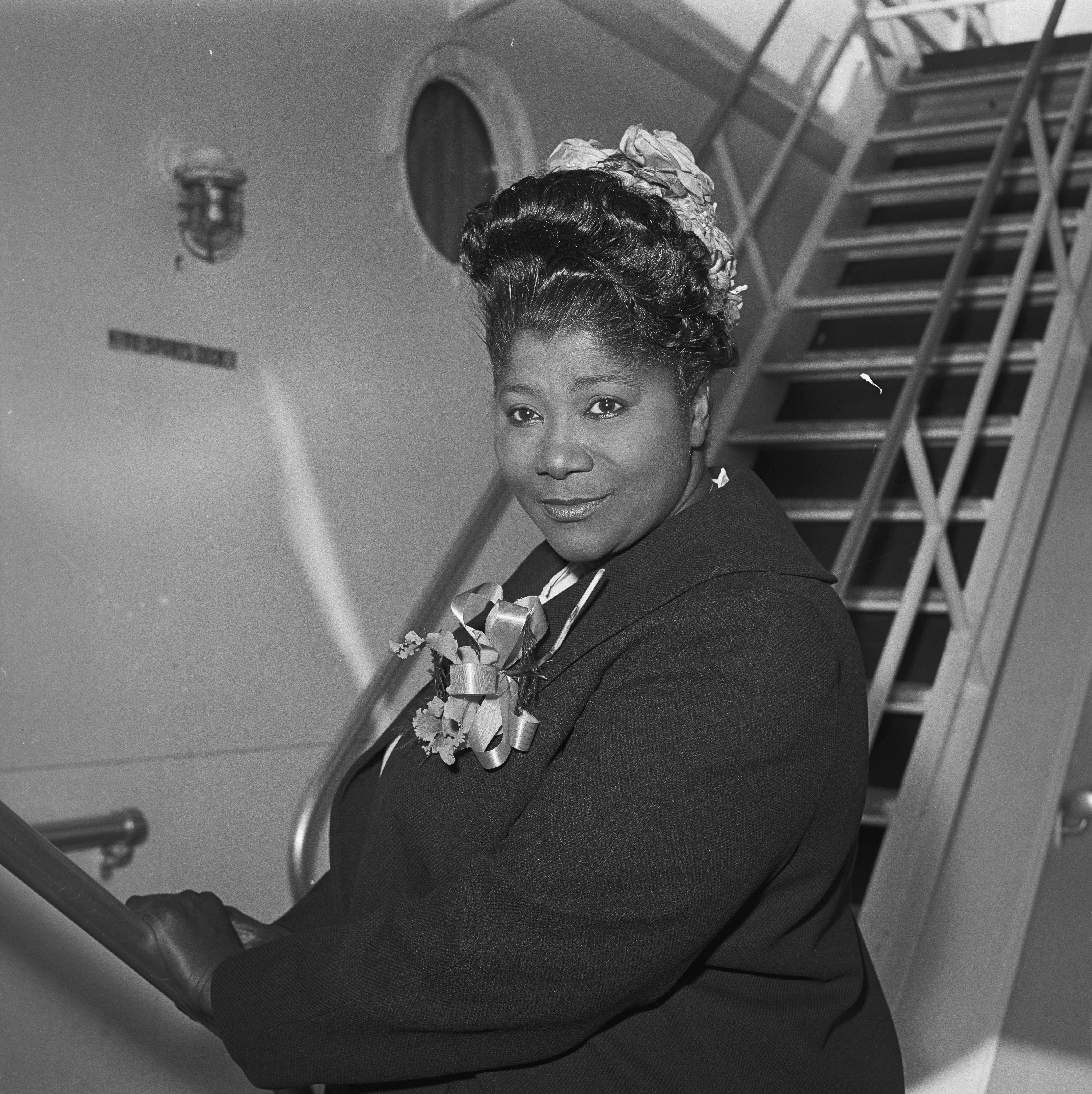
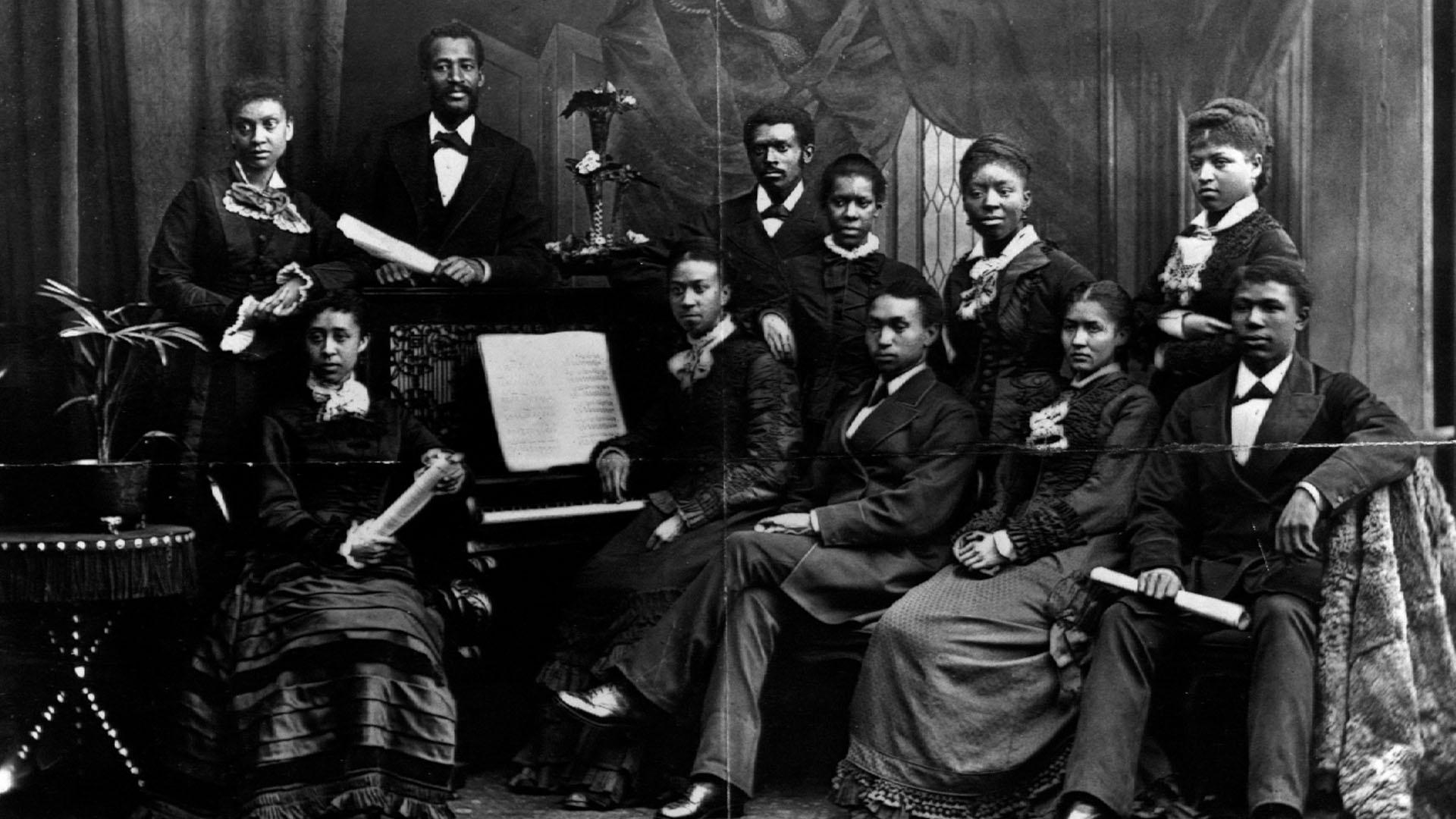
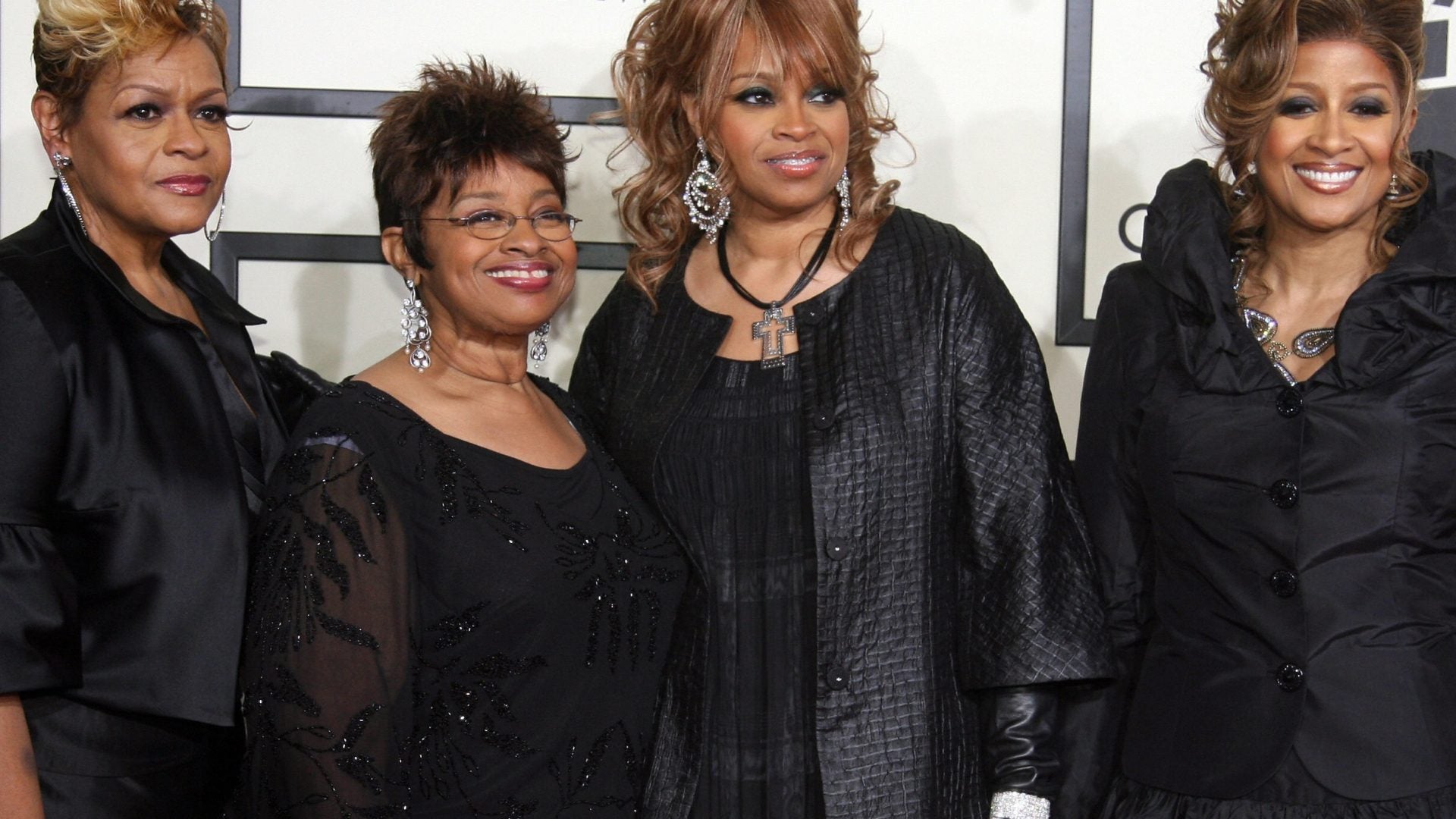




:format(jpeg):mode_rgb():quality(90)/discogs-images/A-2926578-1364517907-9571.jpeg.jpg)

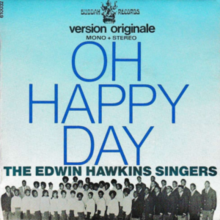





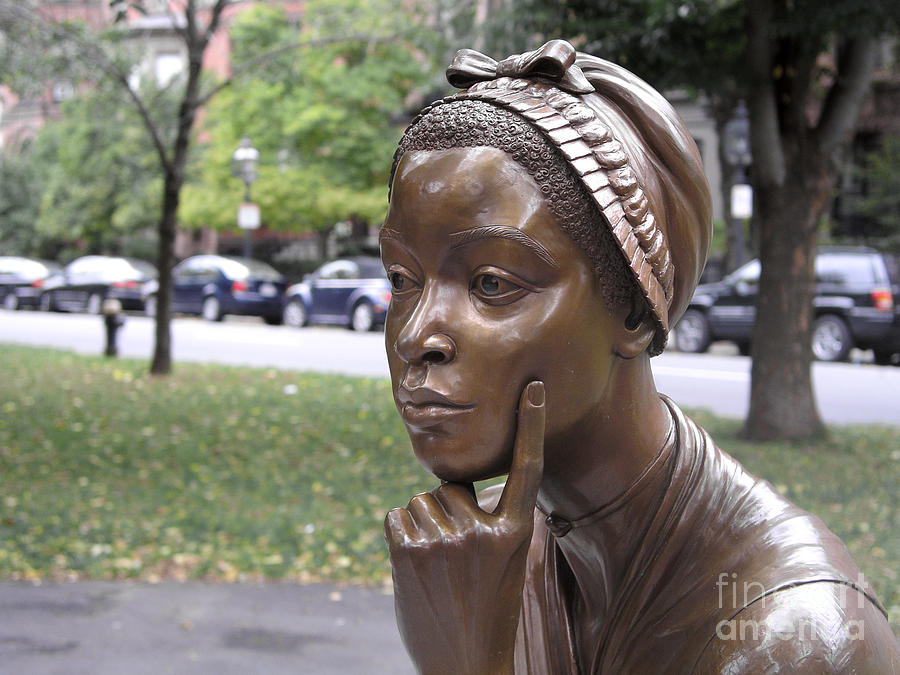
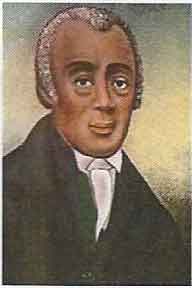
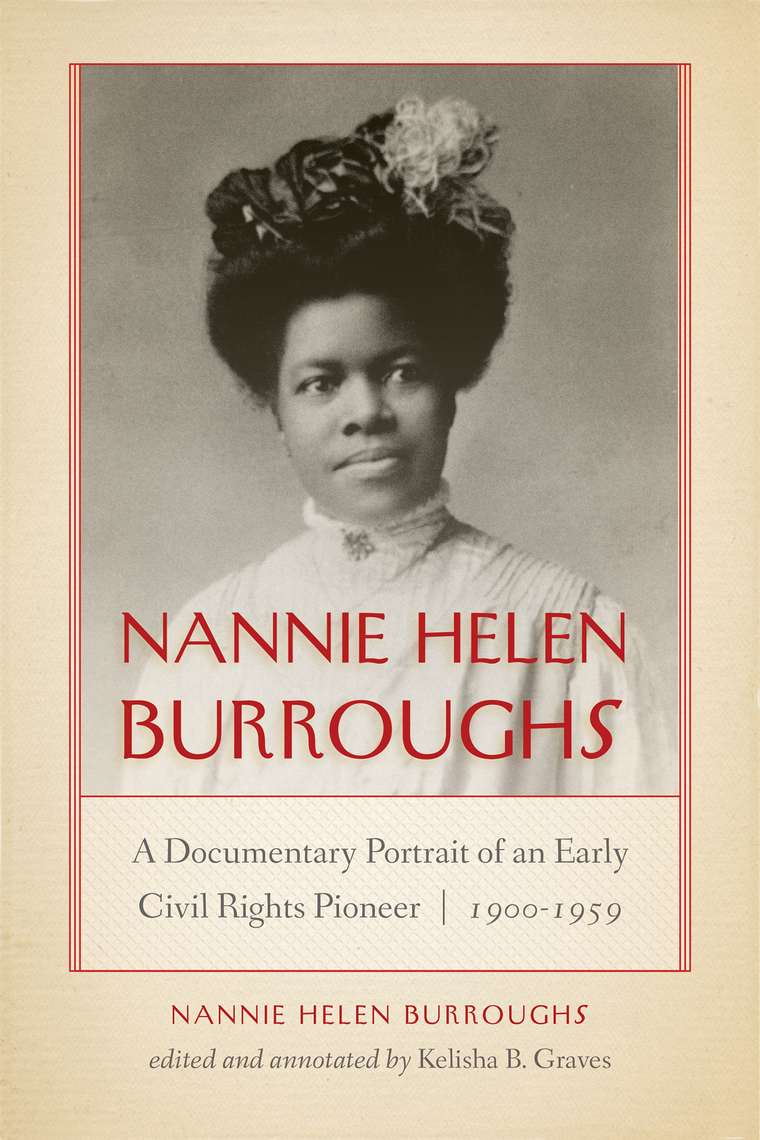
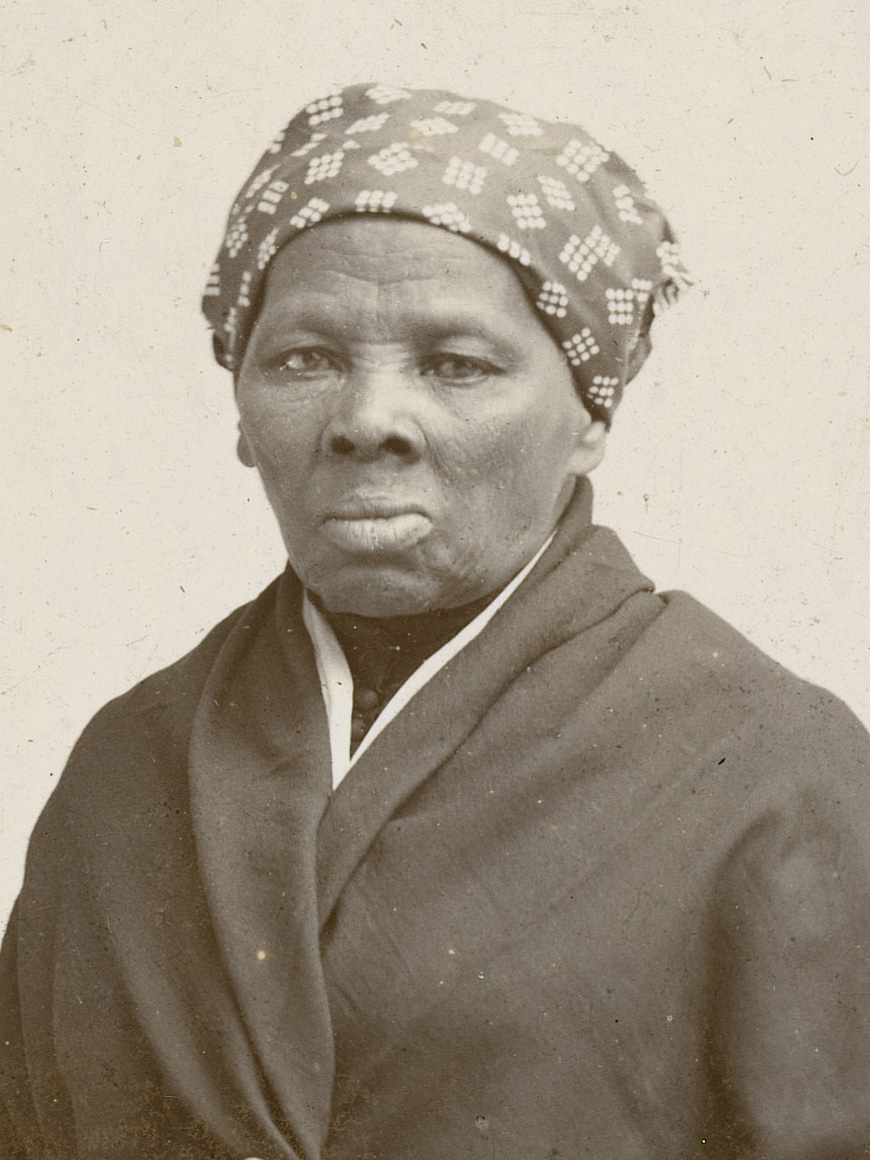
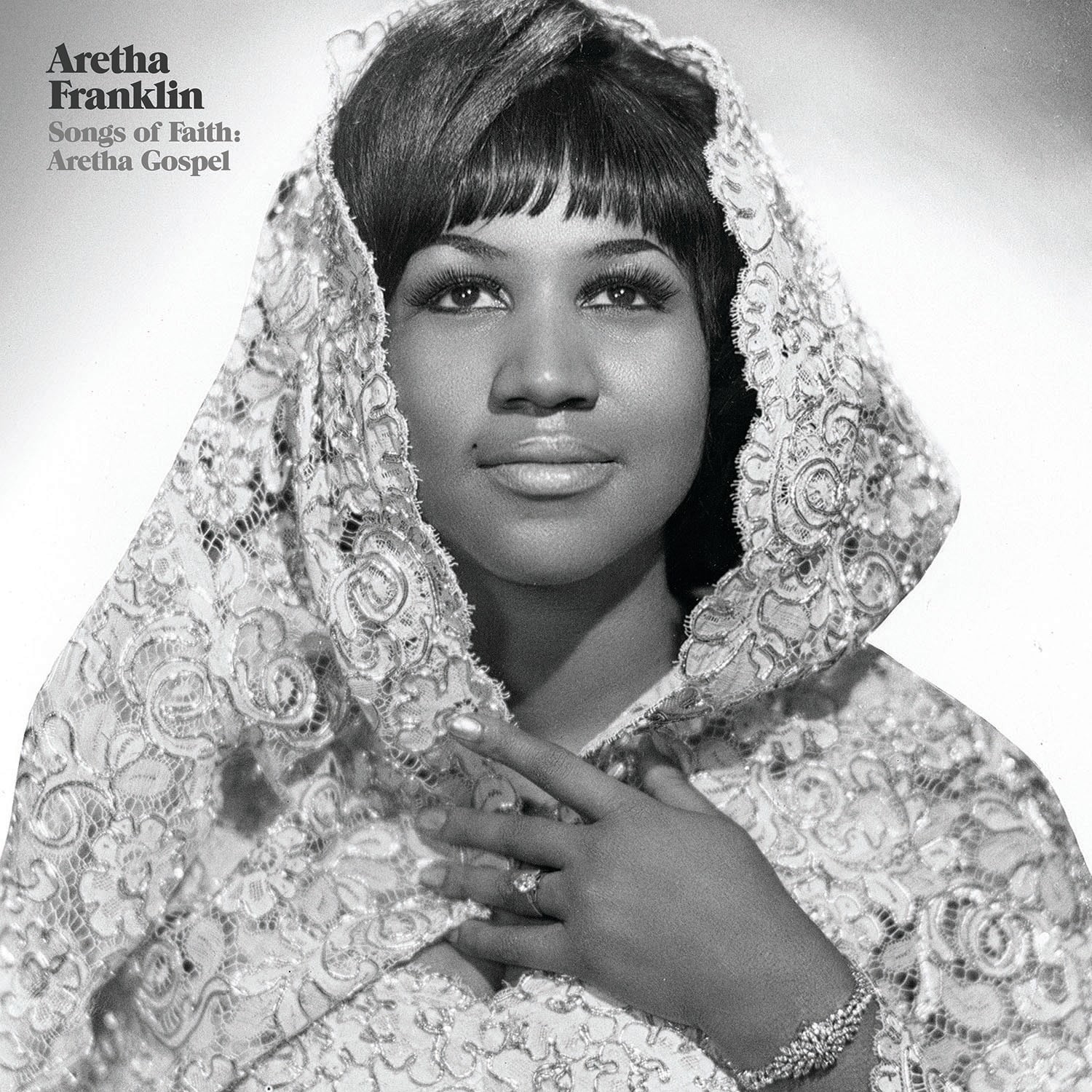
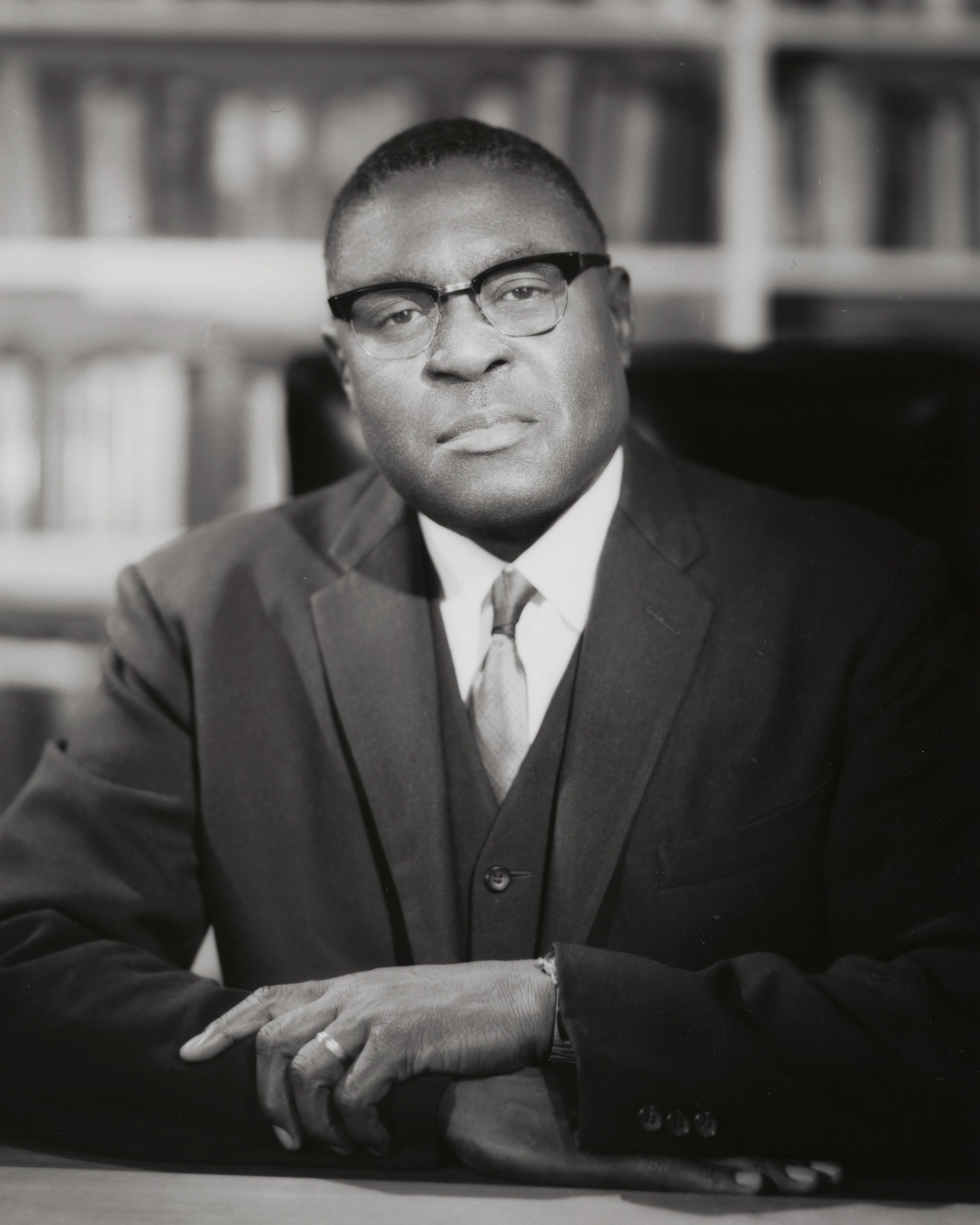


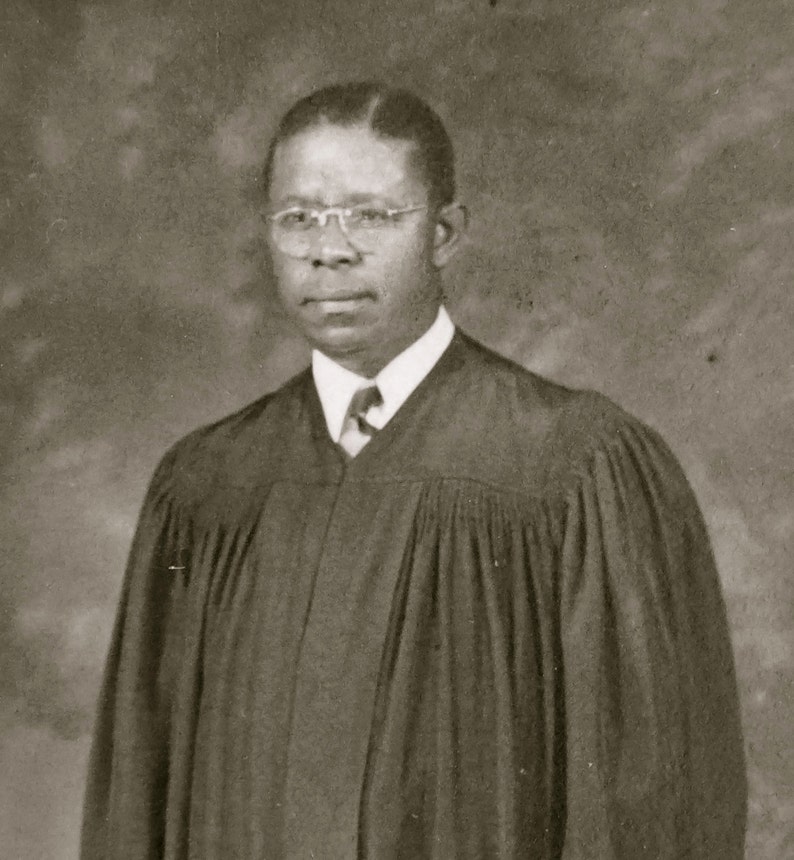
2 comments:
Hello Timothy. Thank you for your post. A lot of information. Here is an article you may interest in. Again, thank you for the post. https://www.francisasburytriptych.com/strong-roots-can-buckle-the-pavement-the-earth-moving-efforts-and-effects-of-americas-first-black-leaders/
You're Welcome. The histories of the 1st and 2nd Great Awakening periods are very important to study.
Post a Comment